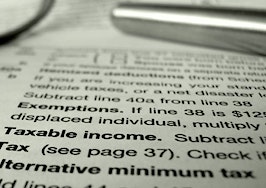- Agents with $100,000 in business income would take home 6.2 percent more under the Trump business tax proposal.
President Trump’s first 100 days came and went without a signature piece of legislation, despite promises to the contrary. One of Trump’s campaign pillars was tax code reform — making the code simpler to navigate and cutting rates for both individuals and businesses, which his administration believes will spur massive economic growth.
In my previous article, I wrote about how Trump’s initial campaign proposal would slash rates for individuals and the effect on agents’ bottom lines because many independent agents are structured as pass-through entities. The benefit for most agents would be minimal, but positive: for the agent with $100,000 in gross business income, their profit would increase by roughly $2,000.
On Thursday, the Trump Administration dropped another tax bombshell: a proposed a rule change to allow pass-through entities like LLCs, partnerships and S Corporations to pay a flat 15 percent business tax, rather than tax income at personal rates, which (if passed) could be great for you.
A quick tax lesson
What exactly does this mean though, and how can real estate agents be poised to take advantage of the tax change if it’s passed by Congress? How will entrepreneurs like agents stand to profit?
The present tax code is set up so that real estate agents pay taxes at their personal rates, rather than the current business rate of 35 percent (unless your real estate business is a C Corporation). This is the definition of a “pass-through” business — and it benefits small business owners by avoiding double taxation and, in most cases, lower taxes.
If your real estate business is set up as a partnership, LLC or S Corporation, then you’re a pass-through entity. Pass-throughs make up over 90 percent of U.S. businesses and range from mom-and-pop hardware stores to Wall Street hedge funds and, well, real estate brokerages.
Trump’s proposal eliminates the current pass-through tax structure in favor of a 15 percent flat rate for these types of businesses. The more your business profits above the current 15 percent tax bracket for individuals, the more money you will keep if this plan passes.
Crunching the numbers
Now, this all probably sounds a little abstract. Let’s go through a concrete example that demonstrates exactly how your real estate “true profit” might change under the Trump plan — or what your actual profit is after subtracting both business expenses and taxes.
To keep things simple, we’ll assume the following: filing as single, $100,000 in taxable profit (that’s after subtracting your real estate expenses), and no state tax. We’ll also elect to take the newly proposed standard deduction rather than itemize our personal expenditures.
| Current System | Trump Plan | |
| Business Income | $100,000 | $100,000 |
| Standard Deduction | (6,350) | (12,600) |
| Personal Exemption | (4,050) | (0) |
| Self-Employment Deduction | (7,065) | (7,065) |
| Taxable Income | $82,535 | $80,335 |
| Federal Income Tax | (16,373) | (12,050) |
| Self-Employment Tax | (14,130) | (14,130) |
| True Profit | 69,497 | 73,820 |
| True Profit Increase | 6.2% |
As you can see, the proposed Trump tax plan would significantly cut the federal income tax real estate agents pay, but when you add in the self-employment tax and state tax (if your state has income tax), the gap closes pretty quick.
So what’s the takeaway here? Agents with $100,000 in business income would see a 6.2 percent increase in “true profit” under the Trump business tax proposal, with the benefit steadily rising the more you earn over $100,000.
The key point, though, is that agents can only realize the extra profit if they create a business entity. In addition to a potentially much lower tax rate, agents gain the personal legal protection so none of your personal assets are at risk in the event someone sues your business.
If you haven’t done so already, make the business-savvy move of setting up a pass-through entity today.
Aaron Lesher, CPA, is part of the Customer Success and Growth team at Hurdlr, the developer of ProfitDash, in Washington, D.C. Aaron also helped create a free tax resource for self-employed entrepreneurs called 99Deductions. Follow Aaron on Twitter or connect with him on LinkedIn.






